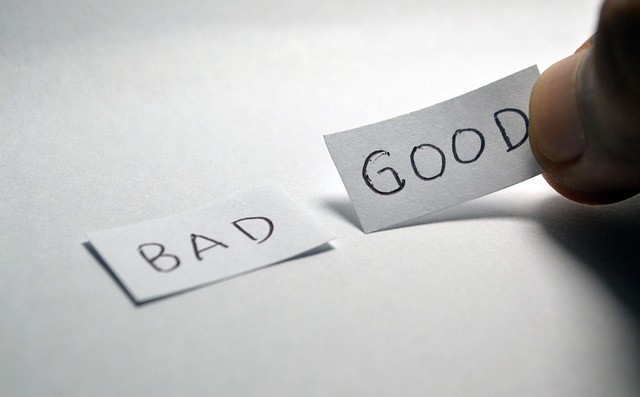
It was the end of a stressful day at the end of a stressful week. My mind was flooded with unfinished to-do’s, mistakes I’d made, and things that had gone wrong. And as I laid down in bed, I was – no surprise – unhappy. Then, I rolled over and grabbed my gratitude journal off the nightstand, opened it up, and began to write.
At first, I struggled to come up with much to put on the page. But slowly, one by one, memories of good things that had happened during the week came to me. Some were small, but some were big and important. I began to feel grateful. Near the end of the page, I did a little pride journaling, writing down a couple of things I was proud of myself for doing. And then I began to let go of the unfinished items on my to-do lists and relax. Lastly, I wrote down something I was looking forward to. And as I reflected on the good things that had happened, the good work I had done, and the good times that awaited me, I realized something:
Life is often better than it seems.
During my stressful week, I had been blind to much of the good. My brain had focused on the bad and latched onto it like an eagle clutching its prey. But upon reflection, the week was actually full of good. I just hadn’t made an effort to notice it or remember it.
And I don’t think I’m alone in this. In Buddha’s Brain: The Practical Neuroscience of Happiness, Love & Wisdom, Rick Hanson, Ph.D., explains that our brains evolved to be “Teflon” for good and “Velcro” for bad.1 In other words, we easily ignore and quickly forget that which is good, but we readily notice and remember that which is bad.1 We do this because, in our ancestors’ environment, bad things were a threat to the very survival of our genes, while good things were merely enjoyable.1 From a strictly Darwinian standpoint, bad trumps good.
To make this more clear, here’s Buddhist author Jan Chozen Bays:
“Have you ever noticed how the mind focuses on what is wrong – wrong with us, with people around us, with our work, and with the world? Our mind is like a lawyer reading the contract for ‘my life,’ always looking for flaws or contract violations. The mind is magnetically drawn to the negative. Just look at the news. What holds readers’ or viewers’ attention is natural or man-made disasters, wars, fires, shootings, bombings, recall of potentially dangerous toys or cars, epidemics, and scandal. Why is our mind attracted to the negative? It’s because the mind doesn’t have to be worried about the positive things that might happen. If good things come to pass, well, that’s wonderful, but the mind quickly puts these aside. The mind’s concern is protecting us from the negative, the dangerous.”2
So it’s human nature to see life as worse than it actually is. But human nature also gives us the capacity to notice, remember, and appreciate the good that comes our way. And it gives us the capacity to choose to do these things.
We can deliberately choose to focus on what’s good. It’s not easy, but it is a skill that you can develop through practice. For example, we can cultivate everyday mindfulness in order to get better at noticing the good. We can choose to savor the good things that come our way by giving them our full attention. We can try to recognize all the little things that make our lives possible, comfortable, and prosperous rather than taking them for granted. We can try to let go of the bad things that happen more quickly by not complaining. Instead of focusing on all the ways we’re unlucky, we can try to remember that every day is a bonus day and feel grateful just to be alive. And we can recall the good things that have happened by gratitude journaling.
To be clear, I’m not suggesting that you put on rose-colored glasses. Rather, I’m suggesting that you try to notice when you’ve accidentally put on poop-colored glasses … and take them off. I’m suggesting that you try to remember that life is often better than it seems.
“Joy is what happens to us when we allow ourselves to recognize how good things really are.” –Marianne Williamson
1 Hanson, Rick. Buddha’s Brain: The Practical Neuroscience of Happiness, Love & Wisdom. New Harbinger Publications, Inc., 2009.
2 Bays, Jan Chozen. Mindfulness on the Go: Simple Meditation Practices You Can Do Anywhere. Shambhala 2014.
